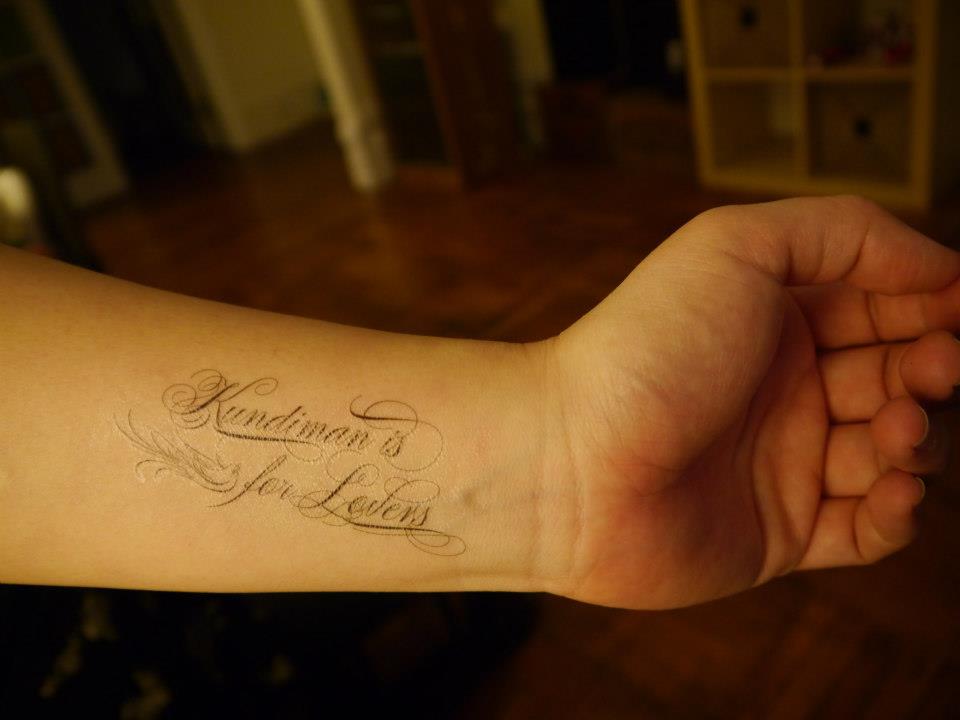 I’m honored to be curating a reading for Beast Crawl, Oakland’s pre-eminent night of literary mayhem! On July 6th, from 5pm-6pm at the awesome Johansson Projects Gallery, Kundiman West and Manifest will join forces to create one mighty reading encompassing Comics! I Ching! Sex! Magic! Cats! and a whole lot more.
I’m honored to be curating a reading for Beast Crawl, Oakland’s pre-eminent night of literary mayhem! On July 6th, from 5pm-6pm at the awesome Johansson Projects Gallery, Kundiman West and Manifest will join forces to create one mighty reading encompassing Comics! I Ching! Sex! Magic! Cats! and a whole lot more.
Rocking your world will be poets MG Roberts, Yume Kim, Margaret Rhee, Jose Vadi, Rex Leonowicz, Mia Malhotra, and yours truly.
Click on this link for the official deets: Join us and bring your friends!
Kundiman West and Manifest: Join Forces
Tag Archives: Candy Shue
Quiet Lightning in the House of Viracocha
There was lots of love in the house on Nov. 5th. Thanks to everyone for coming out for a fun evening! And to QL curators Evan Karp and Chris Cole and all the Quiet Lightning poets! Here’s a clip of my reading, “Feeding Time: The Lion House”:
On The Airwaves
My poem, Undercurrent, was broadcast on the July 30, 2011 episode of Poet As Radio.
Click on the link above to listen to it. Click on Poet As Radio link to listen to the show, where you can hear a wide-ranging conversation with Chris Stroffolino and Delia’s cool, multi-track poem, “She Do the Police In Different Voices”.
Thanks to Jay, Delia and Nicholas for their great work.
Cubist Pronouns Unite

When I was writing my review for Juliana Spahr’s book of poems, Well Then There Now, I thought I would describe her use of pronouns, which seemed very cubist to me. Then I ended up writing about the biography of the poems melding with the autobiography of the poet. I guess reviews are like poems–they never turn out the way you think they will!
I like the way Spahr narrates many of her poems in the collective “we,” using a choral technique to embody the universal nature of experience. Here’s an excerpt from “Gentle Now, Don’t Add to Heartache”:
We come into the world.
We come into the world and there it is.
The sun is there.
The brown of the river leading to the blue and the brown
of the ocean is there.
Salmon and eels are there moving between the brown
and the brown and the blue.
The green of the land is there.
Elders and youngers are there.
We come into the world and we are there.
And we begin to breathe.
We come into the world and there it is.
We come into the world without and we breathe it in.
We come into the world and begin to move between the
brown and the blue and the green of it.
But I think her boldest move, pronoun-wise, is seen in this snippet of the poem, “Unnamed Dragonfly Species,” which is narrated by an unnamed “they”:
They heard about all this cracking and breaking away on the news
and then they began to search over the internet for information
on what was going on. Blue Whale On the internet they found an
animation of the piece of the Antarctic Pine Island glacier breaking
off. Bluebreast Darter After they found this, they often called this
animation up and just watched it over and over on their screen in
their dimly lit room. Blue-spotted Salamander. . .
The descriptions and thoughts in the poem can be assumed to be the speaker’s own, but she chooses to write from the viewpoint of the other, which leads the reader to imagine that the speaker is part of a subgroup of people doing the same thing in different parts of the world, having the same thoughts and worries and hopes. By acknowledging that she is a part of this subgroup, the poet also places herself in opposition to those who aren’t doing what she is. She becomes part of the “they” of the poem. Wow, being a cubist poet is kind of a yoga-like activity, isn’t it?
I really admire Juliana Spahr’s use of pronouns–by writing poems from different vantage points, she expresses the presence of an “I” in “we,” “they,” and even “you.” To be able to occupy so many perspectives at once seems like a very cubist position!
